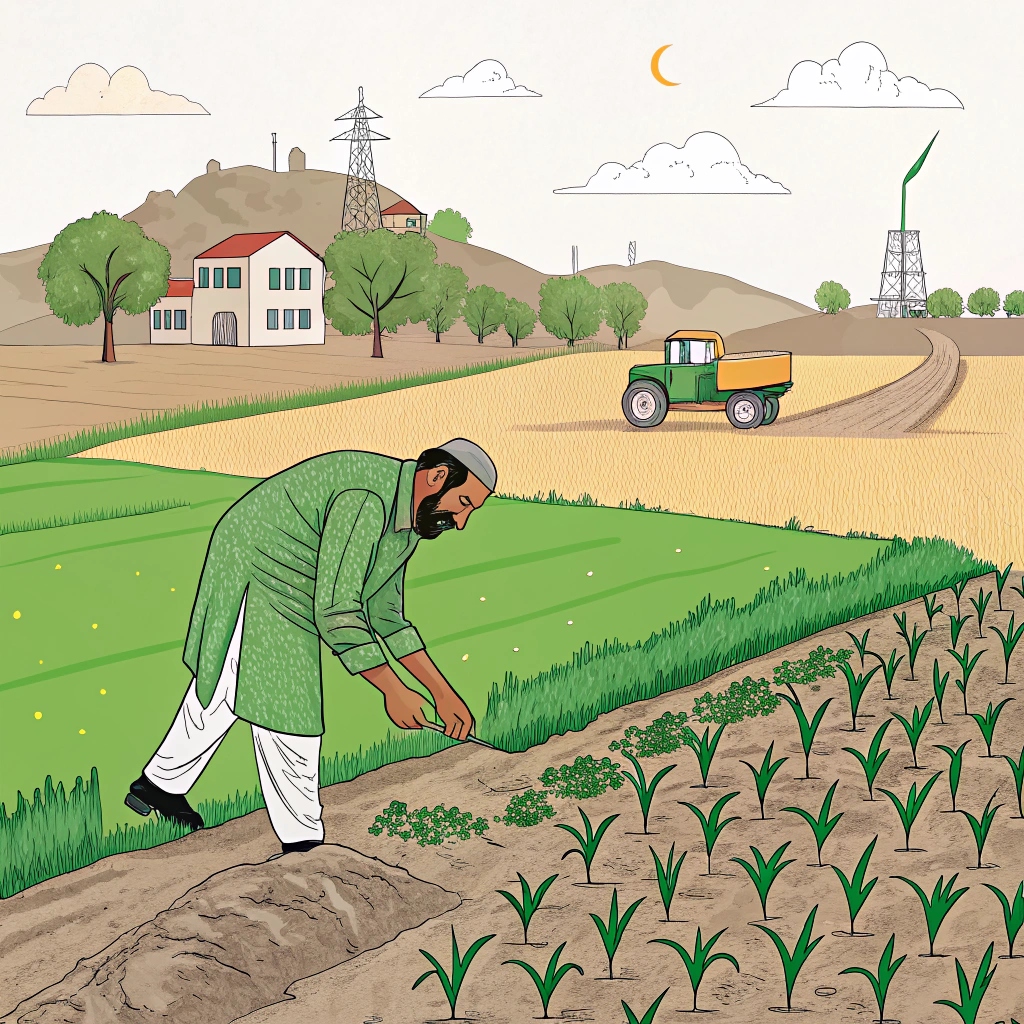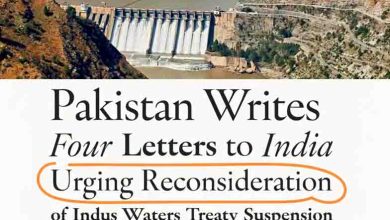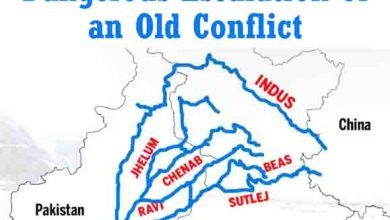Can Pakistan Avoid Economic Collapse? A Deep Dive into the Agricultural Crisis and Food Security Threats
With agriculture facing climate challenges and food security at risk, urgent reforms are needed to prevent a looming crisis.
Pakistan’s economy is teetering on the edge of collapse as its agricultural sector, the backbone of the nation, faces unprecedented challenges. Climate change, inefficient irrigation, and poor policy implementation threaten food security, potentially leading to a $19.5 billion loss in wheat and rice crops by 2050. With the population expected to reach 403 million, the question remains: can Pakistan implement strategic reforms in time to avert disaster?
The Agricultural Sector in Crisis
Climate Change and Unpredictable Weather Patterns
- Rising temperatures, erratic rainfall, and frequent floods are leading to declining crop yields.
- Wheat and rice, staple crops for millions, are at risk due to increasing soil degradation and water scarcity.
- Droughts and floods contribute to inconsistent agricultural output, further driving up food prices.
Water Scarcity and Mismanagement
- The Indus River, Pakistan’s primary water source, is under severe stress due to declining levels and inefficient usage.
- Over-reliance on outdated irrigation methods leads to excessive water wastage.
- Projects like the Kachi Canal Project offer hope by improving irrigation efficiency and expanding cultivable land.
Rising Costs for Farmers and Rural Unemployment
- High fertilizer prices, fuel costs, and outdated farming methods are pushing small-scale farmers into financial distress.
- A decline in farming profitability is leading to rural-to-urban migration, exacerbating unemployment and urban poverty.
Economic Implications of an Agricultural Collapse
Inflation and Rising Food Prices
- Reduced local food production will lead to increased reliance on imports, widening the trade deficit.
- Escalating food prices will weaken purchasing power and push millions into poverty.
Impact on Currency and Trade Deficit
- A declining agricultural sector will weaken the rupee due to increased imports.
- Export potential is diminishing, reducing foreign exchange reserves and exacerbating economic instability.
Rural Exodus and Social Unrest
- As agriculture declines, mass migration from rural to urban centers will overburden cities.
- Rising unemployment and inflation could trigger social unrest and political instability.

A Deep Dive into the Agricultural Crisis and Food Security Threats
Solutions: A Roadmap to Stability
1. Implementing Climate-Smart Agriculture (CSA)
- Drought-resistant and high-yield crop varieties should be prioritized.
- Precision farming and AI-driven soil analysis can optimize water usage and increase productivity.
- Digital weather monitoring can provide real-time climate data to help farmers adapt.
2. Modernizing Irrigation and Water Management
- Adoption of drip and sprinkler irrigation systems can significantly reduce water wastage.
- Expanding rainwater harvesting and constructing additional reservoirs are crucial to sustainable agriculture.
3. Enhancing Food Storage and Supply Chains
- Cold storage facilities and modern silos will reduce post-harvest losses.
- Investing in food processing industries will increase shelf life and export potential.
4. Government Policy Reforms and Subsidies
- Lowering input costs (fertilizers, machinery) through subsidies will make farming more profitable.
- Providing low-interest loans to small-scale farmers will ensure financial security and sustainability.
5. Expanding Agricultural Research and Development
- Establishing research centers for genetically modified crops will improve resilience against climate change.
- Strengthening partnerships with global agricultural experts will accelerate innovation.
6. Encouraging Public-Private Partnerships
- Collaborating with private enterprises for technology transfer and mechanization can modernize farming.
- Foreign investments in agriculture and food security initiatives should be actively pursued.
The Role of the Kachi Canal Project in Agricultural Revival
The Kachi Canal Project is a significant step towards improving agricultural sustainability in Balochistan.
Benefits of the Kachi Canal Project:
- Expands irrigation to over 713,000 acres of arid land.
- Reduces reliance on traditional flood irrigation, minimizing water wastage.
- Enhances wheat, rice, and cotton production, boosting exports.
- Creates employment opportunities in rural areas, reducing urban migration.
- Potential for hydropower integration, contributing to renewable energy development.
Given the dire food security outlook, prioritizing the completion and expansion of this project is imperative.
Conclusion: Averting Economic Collapse through Strategic Action
Pakistan stands at a critical juncture. Without immediate reforms, the nation risks falling into a cycle of food shortages, soaring inflation, and economic collapse. However, by investing in climate-smart agriculture, water conservation, food security initiatives, and economic reforms, Pakistan can safeguard its future.
Key Takeaways:
- Agricultural innovation is crucial to increasing productivity.
- Water conservation measures will mitigate the effects of climate change.
- Improved storage and supply chains can prevent food wastage and inflation.
- Strong governance and policy reforms are necessary for long-term economic stability.
Internal Links:
- How Pakistan Can Improve Agricultural Efficiency
- Climate Change and Its Impact on South Asian Economies
- The Role of Water Management in Sustainable Development
External Resources:
- United Nations on Climate Resilience
- World Bank Report on Pakistan’s Agriculture
- FAO’s Strategies for Food Security
By acting decisively and prioritizing long-term sustainability, Pakistan can navigate these challenges and build a more resilient economic future. The time to act is now.








